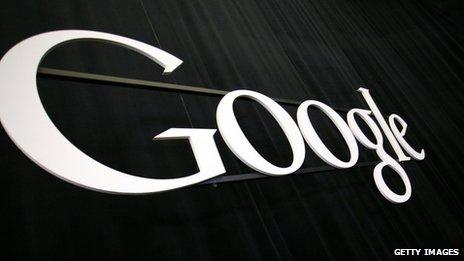Google takes on top hacker George Hotz for Project Zero
- Published

Google's Project Zero will find flaws in its own and other companies' software
Google has assembled a team to spot critical bugs and vulnerabilities - and taken on one of the world's most notorious hackers as an intern.
George Hotz, 24, is best known for hacking Sony's PlayStation 3 and Apple's iPhone, actions that have seen him subject to legal action.
Mr Hotz is part of Google's Project Zero, a new effort to identify problems within any software, not just Google's.
A public database of vulnerabilities will be published by the company.
It will give information on how long it took companies to react to the bug report and issue a fix.
"Once the bug report becomes public (typically once a patch is available), you'll be able to monitor vendor time-to-fix performance, see any discussion about exploitability, and view historical exploits and crash traces," , the Google employee heading the project.
Industrial espionage
The "well-staffed" team will focus on finding so-called zero-day vulnerabilities. This is the term given to problems with software that had not previously been identified, meaning hackers have the chance to exploit a bug fully before it is patched - fixed - by developers.
"You should be able to use the web without fear that a criminal or state-sponsored actor is exploiting software bugs to infect your computer, steal secrets or monitor your communications," Mr Evans continued.
"Yet in sophisticated attacks, we see the use of 'zero-day' vulnerabilities to target, for example, human rights activists or to conduct industrial espionage. This needs to stop.
"We think more can be done to tackle this problem."
Part of that effort requires bringing on the types of people that were previously the object of technology firms' ire.
Mr Hotz - known as geohot online - was taken to court by Sony after he hacked the PlayStation 3 so it could play pirated games.
The case was settled out of court, with Mr Hotz agreeing to not target Sony products in future.
Meet the bug hunters
You've found it. A way in. A gap in the fence; a chink in the armour. The needle in the... stack of needles.
But now what? Do you do the good thing? Tell the owner you've rumbled their security, help them fix it and get a well-meant pat on the back?
Or do you take your new weapon out into the wild and sell it to the bad guys for thousands upon thousands of pounds?
Read more: Big bucks paid to keep ahead of hackers
Google also felt the sharp end of Mr Hotz's hacking ability - he was able to hack the firm's Chrome operating system.
In contrast to the Sony lawsuit, Mr Hotz was awarded a $150,000 (ÂĢ88,000) prize as part of a competition arranged by manufacturer HP.
"I think what we've seen in the past 18-24 months is a change in attitude from a lot of companies on how to handle vulnerabilities in their applications," said security expert Brian Honan, who noted that Mr Hotz had also worked for Facebook.
"We've seen Google be very proactive in this, but other companies like Facebook and Microsoft all have 'bug bounty' programmes whereby you can report a bug and be financially compensated."
Mr Honan did not think that Google calling out other firms on security would backfire.
"Other companies may begrudgingly accept Google reporting a vulnerability," he said.
"But at the same time, most companies do now have a progressive attitude to receiving reports - I don't see them looking at Google in a negative way."
- Published7 August 2013
- Published12 April 2011
- Published24 March 2011
- Published28 January 2011